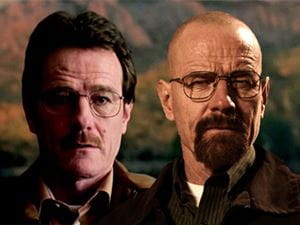
For five jaw dropping seasons, Breaking Bad has presented the story of Walter White, an ordinary high school chemistry teacher who is diagnosed with cancer and faced with insurmountable medical bills that promise to leave his family broke. In the very first episode of the series, Walter explains to his class that chemistry is the study of “growth, decay, and transformation.” Indeed, the entire series presents this process as Walter transforms from someone just like any of us, a slate as blank as his name would suggest, into something we could never see ourselves becoming. At least, not at first.
Walt does not transform into an entirely different person. Rather, he becomes a more fully realized version of what lay dormant in him all along. He had long-suppressed inner demons that are brought out and plague him throughout the series, the most notable being his pride and his greed. Individually, Walt’s decisions do not seem far from ones we might find ourselves making. Each one, however, enables the next; he gradually but dramatically slides down a slippery slope from a man earnestly looking to provide for his family to a ruthless, widely feared kingpin who declares, “I’m not in the meth business. I’m in the empire business.” But the most frightening aspect of the show is not the gruesome murder scenes or horrifying portrayals of addiction that we are exposed to. It’s that Walter White could be any of us.
Given the intense subject matter, conservative audiences may be hesitant to watch the show or may even dismiss it without consideration.

